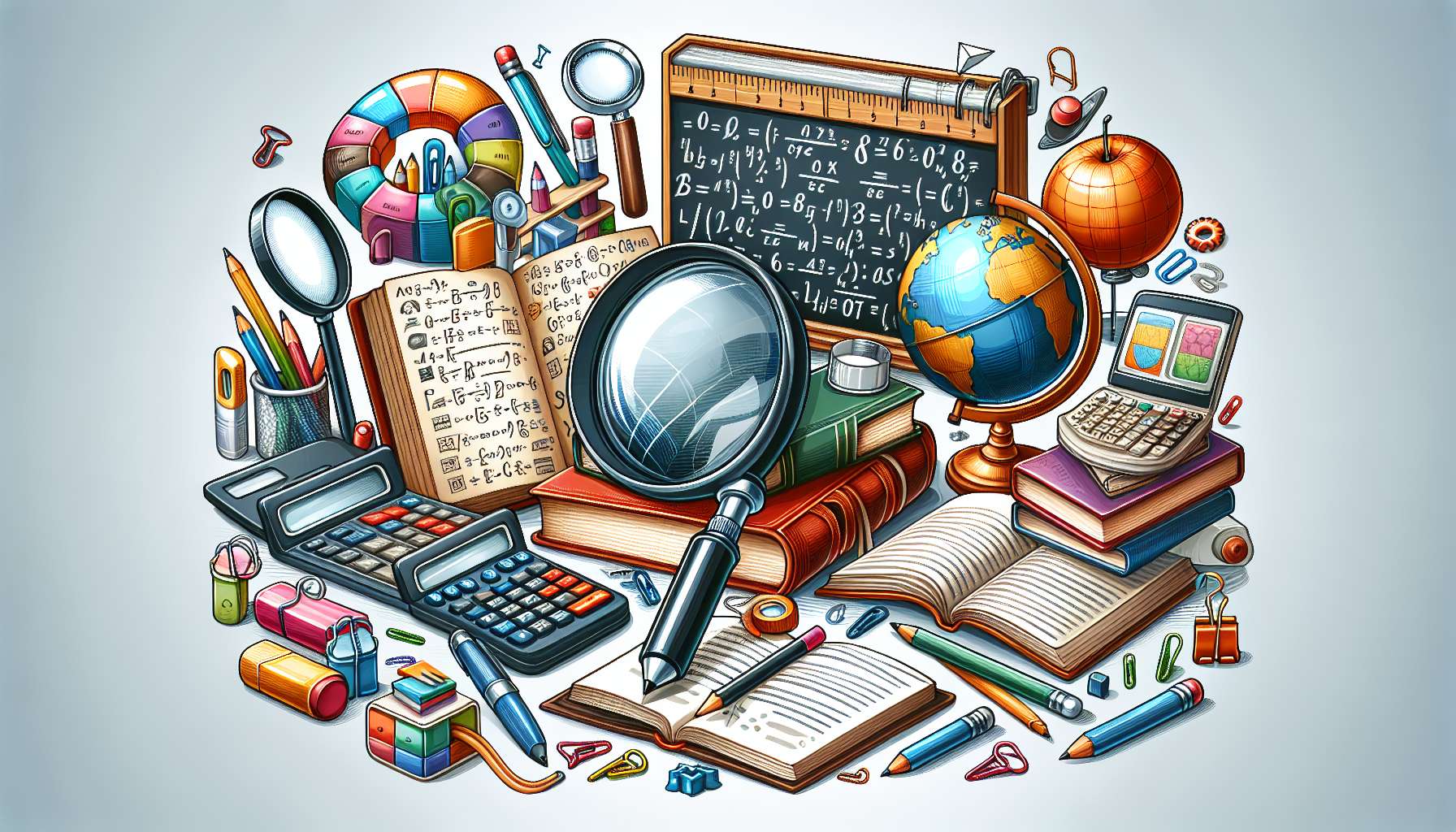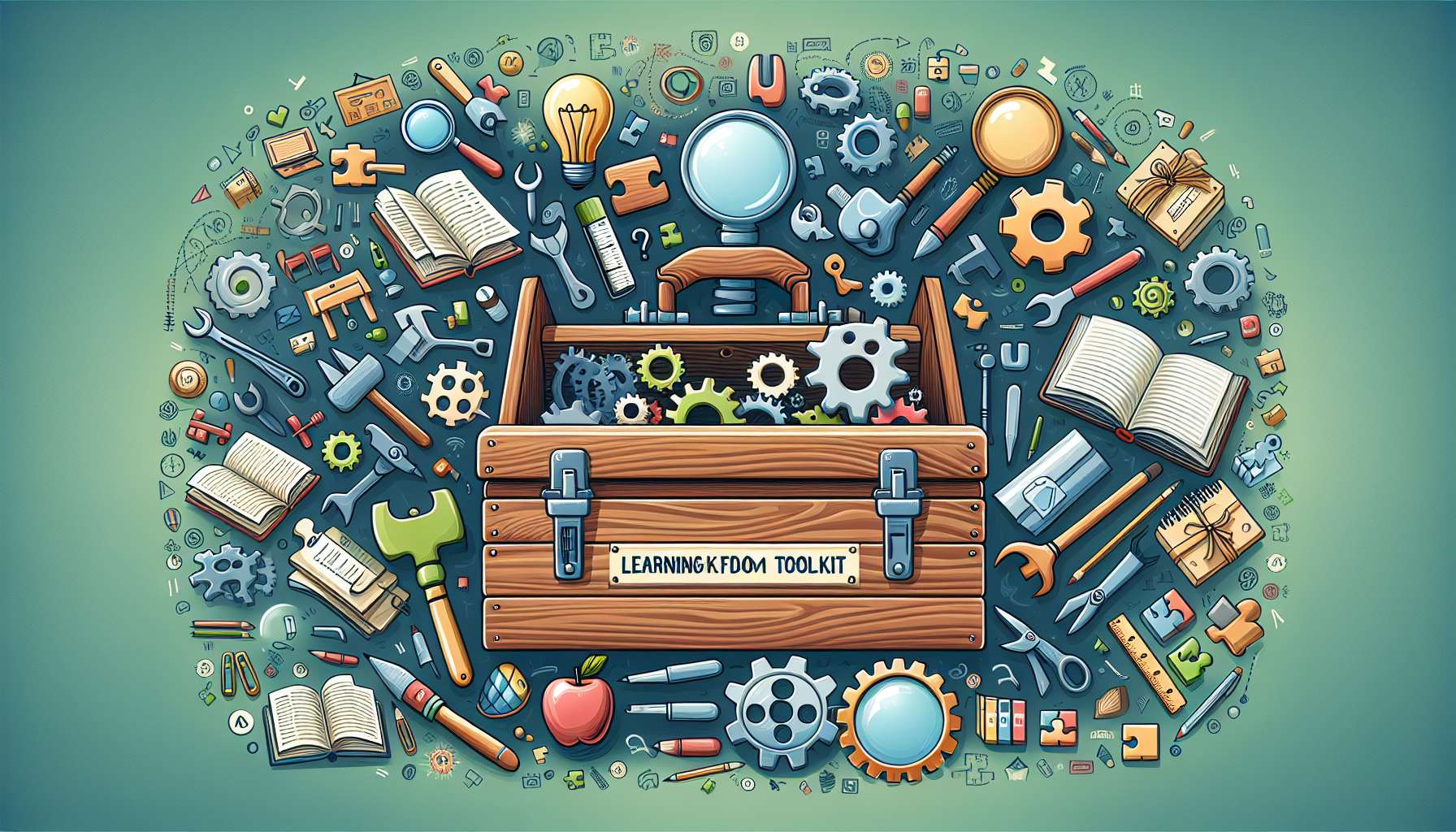Fundamental Learning Tools: Unlocking the Path to Knowledge
Education is the cornerstone of personal and professional growth, and in today’s fast-paced world, enhancing learning methods is essential. Fundamental learning tools play a crucial role in shaping how we acquire, process, and retain information. From traditional methods like books and lectures to modern innovations such as online platforms and interactive apps, these tools are the building blocks of knowledge acquisition. In this comprehensive guide, we will delve into the world of fundamental learning tools, exploring their importance, applications, and future implications.
The Power of Books: A Timeless Learning Tool
Books have been a fundamental learning tool for centuries, providing a wealth of knowledge across various subjects. From textbooks to novels, books offer a diverse range of information that can stimulate critical thinking and creativity. Research has shown that reading can improve vocabulary, comprehension, and cognitive skills. For example, a study conducted by the University of Sussex found that reading can reduce stress levels by up to 68%, making it not just an educational tool but also a form of therapy.

Lectures and Seminars: Interactive Learning Experiences
Attending lectures and seminars is a traditional yet effective way of learning. These interactive sessions allow students to engage with the material, ask questions, and participate in discussions. Research has shown that active learning through lectures can improve retention and comprehension. For example, a study published in the Journal of Educational Psychology found that students who actively participated in lectures had higher exam scores compared to those who passively listened.
Online Platforms: The Digital Frontier of Learning
In today’s digital age, online platforms have revolutionized the way we learn. From MOOCs (Massive Open Online Courses) to educational websites and apps, these platforms offer a wealth of resources at our fingertips. Online learning provides flexibility, accessibility, and interactive tools that cater to diverse learning styles. For example, platforms like Coursera and Khan Academy offer a wide range of courses on various subjects, allowing learners to study at their own pace and convenience.

Interactive Apps: Engaging Learning on the Go
Interactive apps have become popular learning tools, especially among younger generations. These apps use gamification and interactive features to engage users and make learning more enjoyable. Research has shown that gamified learning can improve motivation, retention, and overall learning outcomes. For example, language learning apps like Duolingo and Rosetta Stone use interactive games and quizzes to help users master new languages in a fun and engaging way.
Virtual Reality: Immersive Learning Experiences
Virtual reality (VR) technology is transforming the way we learn by providing immersive and interactive experiences. VR simulations allow learners to explore complex concepts in a realistic and engaging environment. Research has shown that VR can improve spatial awareness, memory retention, and critical thinking skills. For example, medical students can use VR simulations to practice surgical procedures in a safe and controlled setting, enhancing their learning experience.
Collaborative Tools: Fostering Teamwork and Communication
Collaborative tools like Google Docs, Slack, and Trello are essential for group projects and teamwork. These tools enable students and professionals to collaborate in real-time, share resources, and communicate effectively. Research has shown that collaborative learning can improve problem-solving skills, creativity, and social interactions. For example, a study published in the Journal of Education Technology & Society found that students who used collaborative tools in group projects had higher engagement and satisfaction levels compared to those who worked individually.
Adaptive Learning Systems: Personalized Education for Every Learner
Adaptive learning systems use artificial intelligence and machine learning algorithms to personalize education for individual learners. These systems assess a student’s strengths, weaknesses, and learning preferences to deliver customized content and feedback. Research has shown that adaptive learning can improve learning outcomes, engagement, and motivation. For example, platforms like Smart Sparrow and DreamBox Learning use adaptive algorithms to tailor lessons and assessments based on each student’s unique needs and learning pace.
Expert Opinions: Insights from Education Leaders
To gain further insights into the world of fundamental learning tools, we reached out to education experts and leaders in the field. Dr. Sarah Jones, a prominent educator and researcher, emphasized the importance of leveraging technology to enhance learning outcomes. According to Dr. Jones, “Incorporating interactive tools and digital platforms can make learning more engaging and effective, catering to diverse learning styles and preferences.”
Common Misconceptions: Debunking Myths about Learning Tools
Despite the benefits of fundamental learning tools, there are common misconceptions that surround their use. One prevalent myth is that traditional methods like books and lectures are outdated in the digital age. However, research has shown that traditional tools still play a vital role in the learning process and can complement modern technologies. It is essential to recognize the value of both traditional and digital tools in creating a well-rounded learning experience.
Comparative Analysis: Traditional vs. Modern Learning Tools
While traditional learning tools like books and lectures have proven their effectiveness over time, modern tools offer new opportunities and possibilities for learning. A comparative analysis reveals that traditional tools provide a solid foundation of knowledge and critical thinking skills, while modern tools enhance accessibility, engagement, and personalization. By combining the strengths of both traditional and modern tools, educators and learners can create a comprehensive and dynamic learning environment.
Conclusion: Embracing the Future of Learning
As we navigate the ever-evolving landscape of education, fundamental learning tools remain essential pillars of knowledge acquisition and skill development. From books and lectures to online platforms and adaptive systems, these tools shape how we learn, think, and grow. By embracing a diverse range of learning tools and methodologies, we can create innovative and effective educational experiences that cater to the needs of every learner. The future of learning is bright and full of possibilities, fueled by the power of fundamental learning tools.
To wrap things up, let us remember that education is a lifelong journey, and fundamental learning tools are our trusted companions on this path to knowledge and growth.




